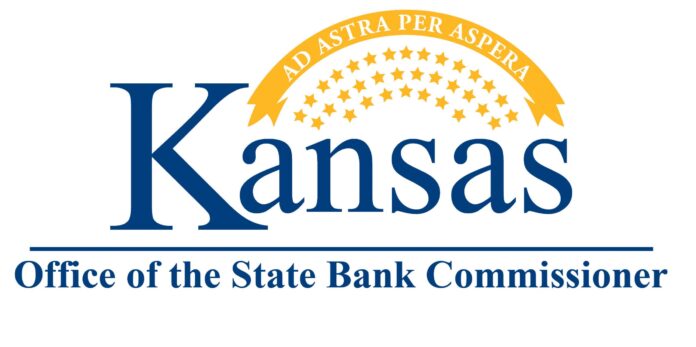Lawmakers have restored the budget for the state banking commissioner after he settled a dispute with a new type of financial institution created by the Legislature.
The House and Senate budget-writing committees agreed to put the $13 million back into the agency now that the disagreement appears resolved.
The money for the bank commissioner’s office was deleted as the bank commissioner was engaged in a fight with Beneficient Fiduciary Financial LLC over whether it could be considered a trust under state law.
Beneficent is a financial institution known as Technology-Enabled Fiduciary Financial Institution, which is referred to in shorthand as a TEFFI.
It allows affluent investors to borrow against alternative assets that can be hard to turn into cash.
A couple weeks ago, a joint House-Senate committee zeroed out the $13 million budget for the Office of the State Banking Commissioner in an effort to send a message to the agency about some information senators were seeking.
Lawmakers never revealed publicly what message they wanted to send to the banking commissioner or what information they were seeking.
But hours after the money was pulled from the agency, an executive from Beneficient told a Senate committee that the company was at odds with the Office of the State Banking Commissioner over whether the company could be considered a trust.
Beneficient told lawmakers that its plans to go public were being hindered over whether it could be defined as a trust, something that would have been cleared up by new legislation pending before a Senate committee.
In its registration statement with the Securities and Exchange Commission, Beneficient indicated it was a trust, a classification questioned by federal regulators because of issues with the bank commissioner, according to the testimony.
Derek Fletcher, Beneficient’s president and chief fiduciary officer, told lawmakers in written testimony on April 4 that the company is a trust under the state law that created this type of financial institution.
“Despite the clear and unambiguous language of the statute, the commissioner has been unwilling to acknowledge BFF’s status as a trust company,” he said.
“This is, of course, disappointing – particularly since there is no statutory support for his position,” he said.
“That law is abundantly clear – yet the regulatory body charged with overseeing that law has chosen to ignore the express language of the statute,” Fletcher said.
“This unsupportable position jeopardizes BFF’s business, Ben’s public listing and the long-term success of the TEFFI industry,” he said.
Fletcher told lawmakers that the matter was “urgent” and quick resolution was “critical.”
The company, he said, has a “legal obligation to make full and adequate disclosures to the judiciary and to state and federal regulators.
“The OSBC’s unsupportable position demands that (the company) make inaccurate and deficient disclosures,” he said.
The banking commissioner and Beneficient signed a memorandum of understanding that said the company has trust powers as defined by the law that created the institution.
Senators referenced the memorandum of understanding on Tuesday morning when agreeing to put the money back into the budget.
A House committee had already agreed to put the money back into the budget on Monday afternoon.
“I did receive the information that everyone has agreed to the language in the MOU, so that’s taken care of,” said Republican state Sen. Rick Billinger, chair of the Senate Ways and Means Committee.
“We can go ahead and fund that,” he said.
The chair of the House Appropriations Committee said the banking commissioner needed to be funded regardless of whether or not the Senate received information it requested.
“I would probably contend that we need to put the money in to fund the state banking commissioner,” said state Rep. Troy Waymaster.
“I believe the Senate was waiting for some information,” he said. “Either if it has or has not been received, we still need to fund it. But, I think it has been received.”
The Kansas Legislature created the so-called TEFFI in 2021, with the goal of giving sophisticated investors the ability to liquidate alternative assets such as venture capital and private equity that aren’t easily converted to cash.
A year ago, the banking commissioner sounded alarms about Beneficient, including his inability at the time to get audited financial statements.
The company also has drawn criticism from a Democratic state senator who suggests the company shouldn’t be trusted to do business in Kansas.
In reporting Beneficient’s formation in 2018, the Dallas Morning News reported that the company was homing in on 1.3 million “ultra-high-net-worth households,” or people with assets between $5 million and $25 million, because they already held alternative investments.
The company also planned to pursue institutions with less than $1 billion in assets, as well as private equity funds, the newspaper reported.
Brad Heppner, who founded Beneficient, told the Morning News that he had $2 billion to lend to customers, including 40% of his money, 10% from other investors and board members, and half from GWG Holdings, now the focus of a federal securities investigation.
Supporters of the Kansas effort say it has no fallout for Kansas taxpayers and is not comparable to providing any kind of tax incentive.
Democratic state Sen. Tom Holland of Baldwin City has been one of the leading skeptics of Beneficient, comparing it to disgraced energy company Enron and calling for a repeal of the law that created this type of financial institution.













